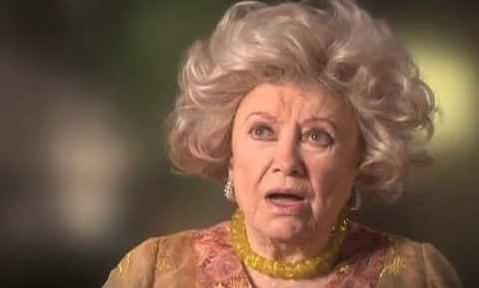'Pioneers of Television' Continues its Look at TV's Best
Fans of this website surely understand an enthusiasm for extraordinary television programming and the excitement of sharing that enthusiasm with others. Writing and reading about TV Worth Watching is what brings us here.
That's the best part of Pioneers of Television, which begins its third season on PBS Tuesday, Jan. 15 at 8 p.m. ET (check local listings). The people who put these shows together are genuinely excited about sharing some of the history of television with viewers who want to know more about that subject. They have fun telling and we can have fun watching. Or not. A couple of loud objections came from some who watched the previous two seasons, and the loudest gripe was that each subject didn't cover enough eligible subject matter.
The subjects chosen for the previous seasons were: late night, sitcoms, variety, science fiction, westerns, crime dramas and local children's television. This season begins with TV's female comedy stars, followed in subsequent weeks by primetime soaps, superheroes and miniseries. Each has an hour to do the job. The producers of these programs know they can't compile museum completeness into a slot that size. They just want to offer an overview of some of the highest points and give anyone in the audience who might want more scholarly detail some directions on where to find it.
"We're not trying to be an encyclopedia," Mike Trinklein said in a recent phone interview. He and Steve Boettcher are executive producers of the series. "We have had to make some choices. To us, that means we're focusing on the people and not on the shows. We don't try to be a comprehensive look at anything.
"We're not guided by the concept of just nostalgia, either. What we want to accomplish is to provide an insight into the people who shaped our media."
As a result, viewers may not see clips of and interviews with a favorite comediennein the Funny Ladies season opener this week. But they will get to see legends like Carol Burnett, Lucille Ball and Betty White (left) in some very memorable moments and see segments of interviews that give added depth to a TV era that increasingly more people who like television didn't have a chance to witness as it happened.
This year's four Pioneers installments entertain, enlighten more than a little and perform a function no other productions have had the resources, love of the medium and the time to do. (The two producers have been doing this since 2004, and Trinklein assessed what they've done till now "a very large investment of our time.")
Next week's program about nighttime soaps focuses mostly on Dallas, Dynasty and Knots Landing, but puts them into a larger context. Superheroes gets similar treatments, with closeups of a couple of series supplemented by a briefer overview. The best part of the final week's focus, miniseries, is its retelling of how, in 1977, Roots captured the country's interest like nothing else before it, set ratings records and raised awareness of racial history and relationships in this country.

The next-largest obstacle, he said, is getting rights to the show clips and photos that help make watching Pioneers so much fun.
"There are hundreds and thousands of stills and clips, and each one takes negotiations," Trinklein said. Some people they have approached have adamantly refused to help, while others took a bit more convincing than normal. "You quickly end up knowing who you have to avoid and who you have to be nice to."
And some ideas have not be approved because not enough visuals exist. He said PBS did not approve a segment on early TV drama series for that reason.
Hard as it has been, at times, to put the three seasons together, the partners and PBS are convinced the results have been worth it. They already have proposed four episodes for the next series, though it's too early for final approval from PBS: medical shows, people who transitioned from stand-up comedy to sitcoms, ones that have broken barriers and character actors.
The subject matter has yet to be tapped out, he said, and their enthusiasm has remained high. And with each new season, he added, "I think we're getting better at it."